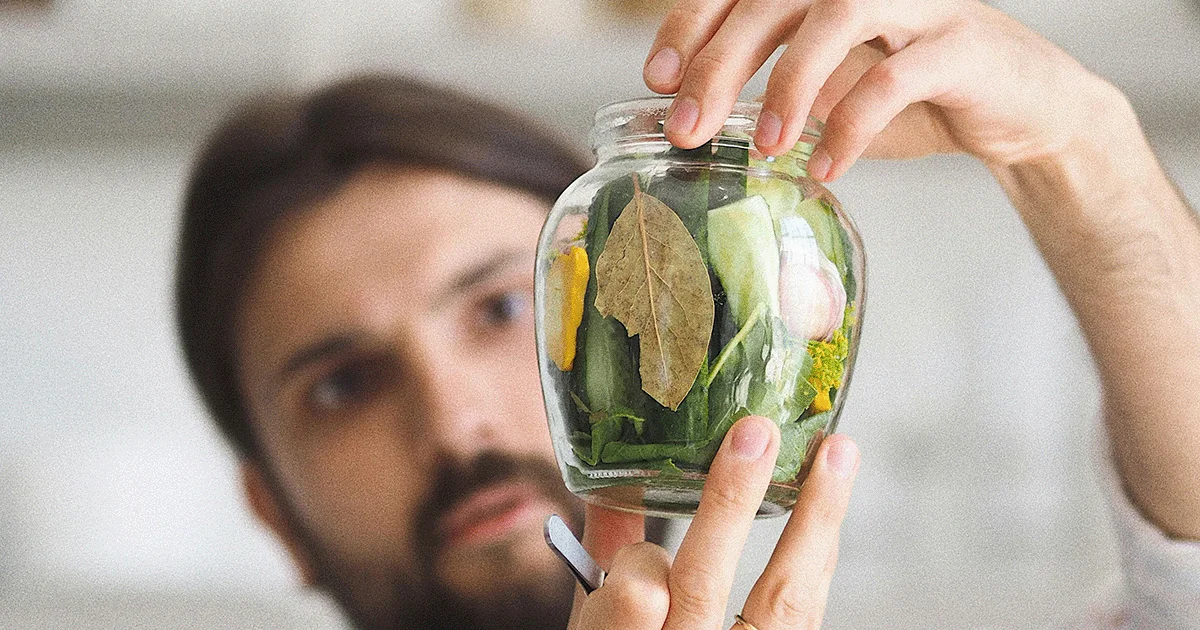Here's what we'll cover
Here's what we'll cover
Vitamin C powder, otherwise known as ascorbic acid powder, is available under many different brand names. Due to the popularity of vitamin C powders, most chain drug stores supply their own generic brand.
These packets of flavored powder often contain 1000 mg of Vitamin C, a few B vitamins, zinc, and other electrolytes that are marketed to provide immune support. While people might think they are only getting vitamin C from these powders, the actual list of vitamins they contain may be long and is listed on the back.
Here are just a few of the vitamins and minerals often contained in Vitamin C powder that is marketed for immune support:
Vitamin C (l-ascorbic acid, zinc ascorbate)
Vitamin B1 (thiamine hydrochloride)
Vitamin B2 (riboflavin)
Vitamin B3 (niacin)
Vitamin B6 (pyridoxine hydrochloride)
Vitamin B9 (folic acid)
Calcium, phosphorous, magnesium, zinc
According to the instructions, you're to take one packet and stir it into a large glass of water before drinking once a day. You can take vitamin C with or without food. This supplement is marketed for those ages 14 and up. Vitamin C powders come with a warning that if you are pregnant, nursing, or taking daily medications that you should talk to your healthcare provider before taking them.
All vitamins and supplements come with another warning that the FDA does not evaluate statements made on the label and that this product is not intended to treat, cure or prevent disease. But we'll get back to why that is later. It is also important to mention that while vitamin C has gained a lot of attention for its use in skincare, vitamin C powders marketed for immune support are meant to be taken by mouth and never used directly on the skin (Al-Niaimi, 2017).
Are there benefits to taking a vitamin C supplement?
Vitamin C has been established as an essential part of our immune system. It plays a vital role in fighting infections and is important for wound healing. Vitamin C is necessary to synthesize certain chemicals in the brain called neurotransmitters; acts as an antioxidant against free radicals and has many other functions in the human body. It is also involved in the production of an essential protein in our skin called collagen (Carr, 2017).
Unlike some other animals, humans can't make vitamin C themselves and depend on an outside source for it. So if vitamin C is so important, why is it not recommended that everybody take a dietary supplement?
The reason for this is vitamin C is found in a lot of the foods you eat. Oranges, peppers, kiwis, and strawberries are all great sources of vitamin C. The Institute of Medicine estimates that adults can get their daily vitamin C requirement by eating five varied sources of fruits and vegetables a day. The average daily need for vitamin C ranges from 75-120 mg per day for adults, depending on age and gender. One exception is smokers, who require 35 mg more vitamin C a day (NIH, 2020).
People who have a low intake of vitamin C can develop dry skin, become very tired, and eventually can develop a disease known as scurvy. While scurvy is very rare in developed countries, vitamin C is actually the indicated treatment for it (Stephen, 2001).
A brief primer on scurvy
It's estimated that, between 1500 and 1800, around two million people—mostly seafarers—died of scurvy. It wasn't until the juice of citrus fruits was added to sailors' daily ration of grog (watered-down rum) that the world's navies got a handle on the problem. The pejorative American term "limey" derives from "lime-juicer." Juicing limes is what British sailors were doing to prevent the ravages of the disease in the 19th century.
Initially, imported lemons from southern Europe were used. As the empire expanded, the British navy switched to cheaper limes, which were grown in their colonies. What they didn't know at the time is that limes contain just a quarter of the vitamin C that lemons do. What's more, the way in which the lime juice was stored reduced its potency, rendering it ineffectual.
Minimal research behind vitamin C
Another reason vitamin C is not recommended as a dietary supplement is the lack of compelling evidence for using it to treat or prevent disease—let's start with the common cold. A review published in 2013 compiled all available clinical data on using vitamin C for the common cold. After analyzing a total of 11,306 patients, the authors reported that supplementing with vitamin C did not lower the incidence of colds. However, researchers reported the duration of symptoms to be 8% shorter in adults and 14% shorter in children who took a vitamin C supplement (Hemilä, 2013).
A review studied the use of vitamin C supplements for the prevention of heart disease. The scientists reported no significant impact on the rate of cardiovascular disease between the group who got the vitamin C and the placebo group (Al-Khudairy, 2017).
With all of this in mind, it makes sense that ascorbic acid is not indicated unless you have a deficiency or have developed scurvy from an inadequate diet. More clinical trials are needed to evaluate the role of vitamin C in treating and preventing disease.
Are there any drawbacks to taking ascorbic acid powder?
There are possible side effects of taking too much vitamin C, so always use these products as directed by your healthcare provider. These side effects are pretty rare and often not very serious. A few side effects that can happen from taking too much vitamin C include (Padayatty, 2010):
Diarrhea
Dizziness
Fatigue
Headache
Nausea & Vomiting
Taking large amounts of vitamin C can also lead to a build-up of uric acid. Although it is very uncommon, this build-up could lead to kidney stones (Abdullah, 2020).
In a study where 157 critically ill patients were randomized to receive a high-dose vitamin C infusion, researchers reported no side effects. Unfortunately, the vitamin C infusion did not show a significant improvement in the trial outcomes either (Fowler, 2019).
Despite this, vitamin C should not be given to patients with certain blood disorders like sickle cell disease and a condition called G6PD deficiency (Abdullah, 2020). G6PD is an enzyme that helps your blood cells fight against stressors that could cause the cells harm. Most common in men of African American and Mediterranean descent, this condition is genetic and could put you at risk for toxic effects from vitamin C.
The combination of vitamins and electrolytes in some ascorbic acid powders can 'interact' with other medications. A drug interaction is when one medicine impacts the absorption or metabolism of another. Taking two medications that interact can lead to potentially serious side effects.
The magnesium in some vitamin C powders can have a potentially harmful interaction with a few medications, including:
Raltegravir (brand name Isentress) an antiretroviral medication that is part of a regimen to treat HIV
Misoprostol (brand name Cytotec) a medication used to treat and prevent stomach ulcers
Although sold as vitamin C powder, this supplement can often contain a combination of vitamins, minerals, and electrolytes that are marketed to help you get over a cold and boost your immune system. And while these vitamins are very rarely harmful, there is not enough evidence that taking 1000 mg (more than ten times the amount recommended by the Institute of Medicine) of vitamin C is beneficial to your wellness. Talk to your healthcare provider if you're thinking about taking a vitamin C supplement, and they can help you decide if it is right for you.
DISCLAIMER
If you have any medical questions or concerns, please talk to your healthcare provider. The articles on Health Guide are underpinned by peer-reviewed research and information drawn from medical societies and governmental agencies. However, they are not a substitute for professional medical advice, diagnosis, or treatment.
Abdullah, M., Jamil, R. T., & Attia, F. N. (2020). Vitamin C (Ascorbic Acid). In: StatPearls [Internet]. Retrieved from https://pubmed.ncbi.nlm.nih.gov/29763052/
Al-Khudairy, L., Flowers, N., Wheelhouse, R., Ghannam, O., Hartley, L., Stranges, S., & Rees, K.. (2017). Vitamin C supplementation for the primary prevention of cardiovascular disease. Cochrane Database of Systematic Reviews . Retrieved from https://www.cochranelibrary.com/cdsr/doi/10.1002/14651858.CD011114.pub2/full
Al-Niaimi, F., & Chiang, N. (2017). Topical Vitamin C and the Skin: Mechanisms of Action and Clinical Applications. The Journal of Clinical and Aesthetic Dermatology, 10 (7), 14–17. Retrieved from https://pubmed.ncbi.nlm.nih.gov/29104718/
Carr, A., & Maggini, S.. (2017). Vitamin C and Immune Function. Nutrients, 9 (11), 1211. Retrieved from https://pubmed.ncbi.nlm.nih.gov/29099763/
Fowler, A. A., Truwit, J. D., Hite, R. D., Morris, P. E., Dewilde, C., Priday, A., et al. (2019). Effect of Vitamin C Infusion on Organ Failure and Biomarkers of Inflammation and Vascular Injury in Patients With Sepsis and Severe Acute Respiratory Failure. JAMA, 322 (13), 1261. Retrieved from https://pubmed.ncbi.nlm.nih.gov/31573637/
Hemilä, H., & Chalker, E.. (2013). Vitamin C for preventing and treating the common cold. Cochrane Database of Systematic Reviews . Retrieved from https://www.cochranelibrary.com/cdsr/doi/10.1002/14651858.CD000980.pub4/full
NIH Office of Dietary Supplements (2020). Vitamin C. Retrieved from https://ods.od.nih.gov/factsheets/VitaminC-HealthProfessional/
Padayatty, S. J., Sun, A. Y., Chen, Q., Espey, M. G., Drisko, J., & Levine, M. (2010). Vitamin C: intravenous use by complementary and alternative medicine practitioners and adverse effects. PloS One, 5 (7), e11414. Retrieved from https://pubmed.ncbi.nlm.nih.gov/20628650/
Stephen, R., & Utecht, T. (2001). Scurvy identified in the emergency department: a case report. The Journal of Emergency Medicine, 21 (3), 235–237. Retrieved from https://pubmed.ncbi.nlm.nih.gov/11604276/












